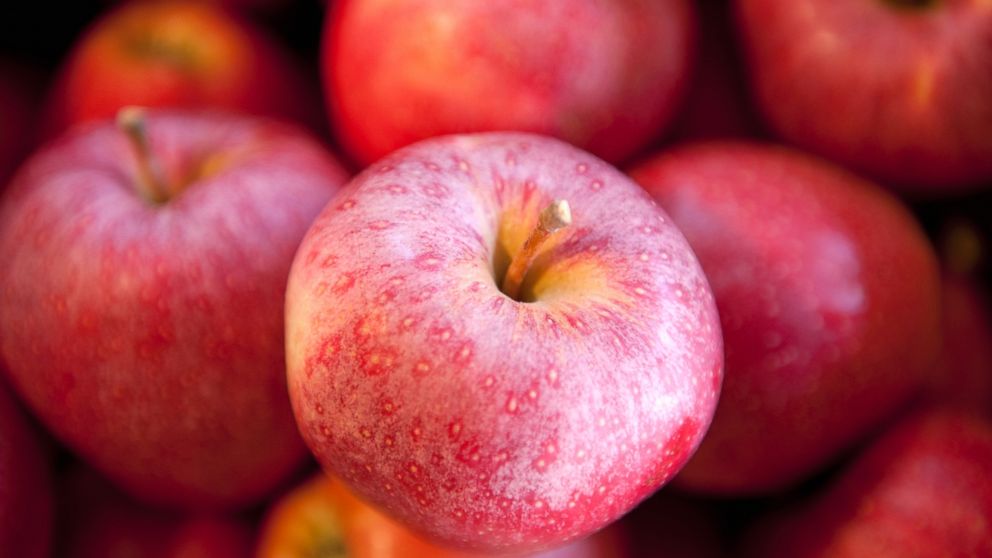An Apple a Day May Not Keep the Doctor Away After All, a New Study Finds
— -- An apple a day probably won’t keep the doctor away, but it may keep you out of the pharmacy, a new study has found.
Researchers from Dartmouth Medical School decided to find out whether the old adage about eating the crunchy fruit daily and staying healthy is actually true. To do so, they followed the apple eating habits of more than 8,000 people for three years, according to the study they published in today’s JAMA Internal Medicine.
Roughly 9 percent of the group munched a small apple a day on a regular basis, the researchers found. And, although 39 percent of the apple lovers avoided seeing a physician each year, compared to 33 percent of the non-apple eaters, once the investigators adjusted for factors like education, age and other health habits, the researchers said the difference wasn’t all that significant. However, apple lovers did fill marginally fewer prescriptions for medications, the researchers reported.
The study, while entertaining, did have some limitations. The fact that all the information in the investigation was self-reported and the number of doctor visits couldn’t be explicitly linked to munching on apples are two of the more serious ones, noted Dr. Sharonne N. Hayes, cardiologist at the Mayo Clinic in Rochester, Minnesota.
Hayes added the researchers didn’t look into why people went to the doctor.
“The apple eaters were highly educated and less likely to smoke,” Hayes said. “It could be that their visits to the doctor were for preventive reasons rather than illness.”
Hayes pointed out that the saying “an apple a day keeps the doctor away” originated in the late 1800s, a time when going to the doctor was always associated with illness. But these days, seeing a doctor could lead to finding undetected medical problems and avoiding poor health, she noted.
Besides, the average price nationally for red delicious apples was $1.21 per pound last week, according to U.S. Department of Agriculture’s retail report.
“Apples probably won’t cure the woes of our health care system, but they’re cheap enough and they certainly won’t hurt,” Hayes said.




